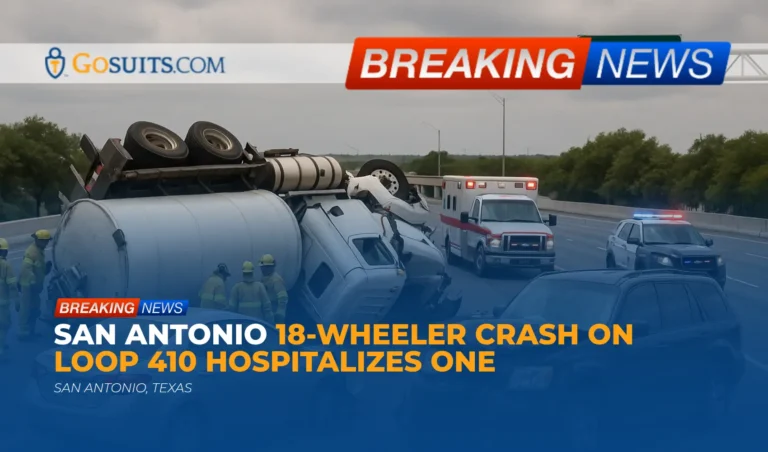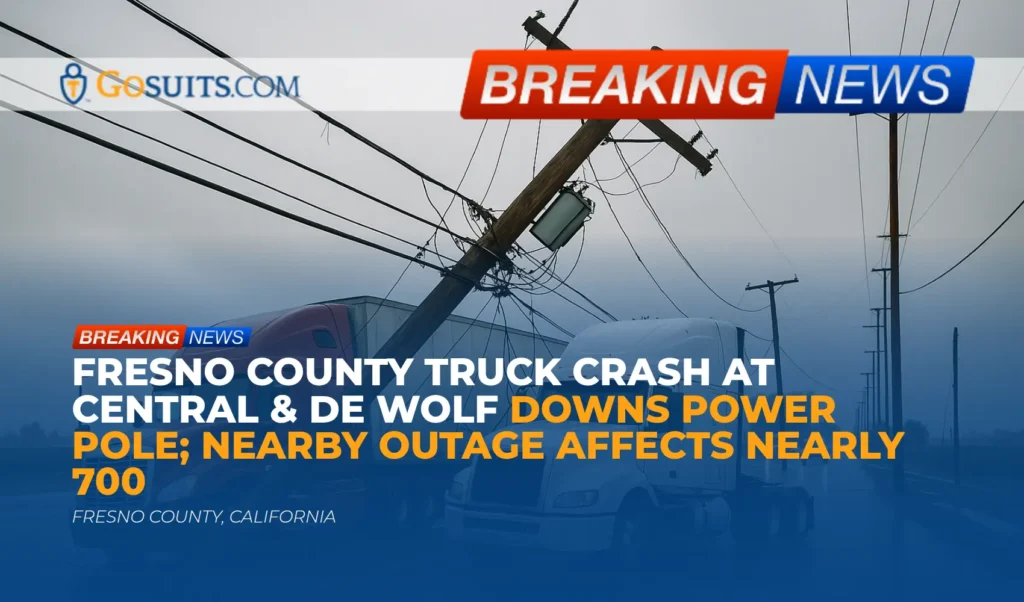On June 20, 2025, a significant traffic incident occurred on Loop 410 in San Antonio, Texas, involving an 18-wheeler and several other vehicles. According to reports from the San Antonio Fire Department (SAFD), the crash took place just after 2 p.m. along Loop 410 at Binz Engleman Road, near Old Seguin Road. One individual was hospitalized as a result of the collision.
Details of the Accident
The Texas Department of Transportation (TxDOT) reported that the crash partially closed the southbound main lanes of the highway, causing significant traffic disruptions. TxDOT cameras at the scene showed fire officials and at least one police vehicle present, managing the aftermath. As of the initial report, only one lane on the highway was open, indicating the severity of the accident and the extensive response required.
Factors Contributing to 18-Wheeler Accidents
Crashes involving 18-wheelers, also known as semi-trucks or tractor-trailers, can lead to particularly devastating outcomes due to the size and weight of these vehicles. Several factors can contribute to such accidents, including:
- Driver Fatigue: Truck drivers often operate on strict schedules, which can lead to fatigue and reduced alertness. Drowsy driving significantly impairs reaction time and decision-making abilities, increasing the risk of accidents.
- Improper Maintenance: Neglecting regular maintenance checks and repairs can result in mechanical failures, such as brake malfunctions or tire blowouts. These issues can cause a driver to lose control of the vehicle, especially at high speeds.
- Overloaded Cargo: Exceeding weight limits or improperly securing cargo can make a truck unstable. Overloaded trucks require longer stopping distances and are more prone to rollovers.
- Distracted Driving: Like all drivers, truck drivers can be distracted by cell phones, navigation systems, or other in-cab activities. Distractions take a driver’s focus off the road, leading to accidents.
- Aggressive Driving: Speeding, tailgating, and other forms of aggressive driving can increase the likelihood of collisions. The greater the speed and the less space between vehicles, the higher the risk of an accident.
- Poor Road Conditions: Inclement weather, construction zones, and poorly maintained roads can also play a role in truck accidents. Slick surfaces, potholes, and other hazards can make it difficult for drivers to maintain control of their vehicles.

Legal Ramifications of Truck Accidents
When a large truck is involved in a collision, the resulting damage and injuries can be substantial. Determining liability in these cases can be complex, often involving multiple parties such as the truck driver, the trucking company, and even cargo loaders or manufacturers.
- Negligence: Most personal injury claims arising from truck accidents are based on negligence. Negligence occurs when a party fails to exercise reasonable care, resulting in harm to another person. In the context of truck accidents, negligence could involve a driver violating traffic laws, a trucking company failing to maintain its vehicles, or a cargo loader improperly securing a load.
- Vicarious Liability: Trucking companies may be held vicariously liable for the actions of their employees. This means that if a truck driver is negligent and causes an accident while working, the trucking company could also be held responsible.
- Insurance Claims: Individuals injured in truck accidents may pursue claims against the insurance policies of the at-fault parties. However, dealing with insurance companies can be challenging, as they often seek to minimize payouts.
- Personal Injury Lawsuits: If a fair settlement cannot be reached through insurance negotiations, an injured party may file a personal injury lawsuit. This legal action allows the injured party to seek compensation for damages such as medical expenses, lost income, pain and suffering, and property damage.
Importance of Documentation and Evidence
In the aftermath of a truck accident, gathering and preserving evidence is crucial. This may include:
- Police Reports: The official police report provides a detailed account of the accident, including contributing factors, witness statements, and citations issued.
- Photographs and Videos: Visual documentation of the accident scene, vehicle damage, and visible injuries can be invaluable.
- Medical Records: Documenting medical treatment and expenses is essential for substantiating injury claims.
- Witness Statements: Contact information and statements from witnesses can provide additional perspectives on the events leading up to the accident.
- Trucking Company Records: Depending on the circumstances, it may be necessary to obtain records related to the truck driver’s hours of service, vehicle maintenance, and cargo information.

Commentary from Gosuits San Antonio, Texas Personal Injury Attorney
The recent 18-wheeler crash on Loop 410 serves as a stark reminder of the potential for severe accidents involving large commercial vehicles. Given the significant size and weight of 18-wheelers, collisions can result in catastrophic injuries and substantial property damage. The complexity of these cases often necessitates a thorough investigation to determine all liable parties and to ensure that victims receive the full compensation they are entitled to.






